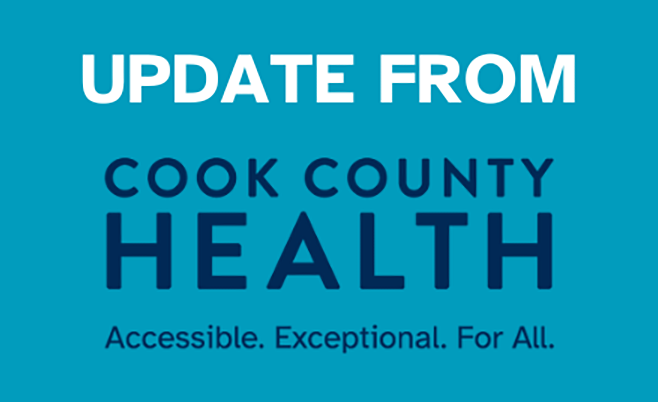CHICAGO – Beginning this summer, Cook County Health will join select hospitals and emergency medical service (EMS) agencies from eight other cities around the country to participate in a Department of Defense-funded clinical trial aimed at improving the survival rates of people who have suffered a trauma that makes breathing difficult.
The Prehospital Airway Control Trial (PACT) is a four-year, $8.8 million study to test different strategies for securing a patient’s airway at the scene of a trauma and to see if one increases survival rates.
“Close to 20 percent of traumatically injured people die because their airways are compromised and they need help breathing,” said Dr. Leah Tatebe, trauma surgeon at Cook County Health, who is the Chicago site principal investigator on the study. “PACT will enable us to determine which strategy EMS personnel should try first when securing a patient’s airway.”
Currently, there are two methods to help an injured person receive oxygen to their lungs – endotracheal and supraglottic intubation. Both consist of tubes that go through a person’s mouth into their airway and are then connected to a ventilation device – either a machine or a bag that can be pumped with the hand – to deliver oxygen to the lungs.
Endotracheal intubation requires the clinician to move the patient’s tongue aside, see the vocal cords and thread a tube between the vocal cords into the patient’s windpipe.
Supraglottic intubation uses a flexible tube that is inserted through the mouth, but instead of having to be threaded through the vocal cords, it sits at the far back of the throat, above the windpipe.
“The supraglottic device is believed to be easier to use because it doesn’t require visualizing the vocal cords, allowing the airway to be secured faster and with less interruption of resuscitation efforts,” said Dr. Tatebe. “However, the endotracheal tube, when placed correctly, may be associated with less risk of the patient inhaling fluid into their lungs.”
For the trial, participating EMS services will initially continue whatever strategy they typically use to secure an airway and collect data on patient outcomes. After a determined amount of time, the services will switch their protocol to trying the supraglottic intubation first. If it fails, they can decide whether to try the supraglottic again or switch to endotracheal intubation.
“The goal of this study is to collect evidence-based data to see if one of the two methods is better,” said Dr. Tatabe.
The study sites will enroll more than 2,000 people who are taken to an adult trauma center.
This is an Exception from Informed Consent trial, with guidelines laid out by the Food and Drug Administration.
Since the trial requires performing a potentially life-saving procedure in people who are too injured to consent, patients who meet the criteria will be automatically enrolled.
Patients or their family members are consented for further participation as soon as possible.

